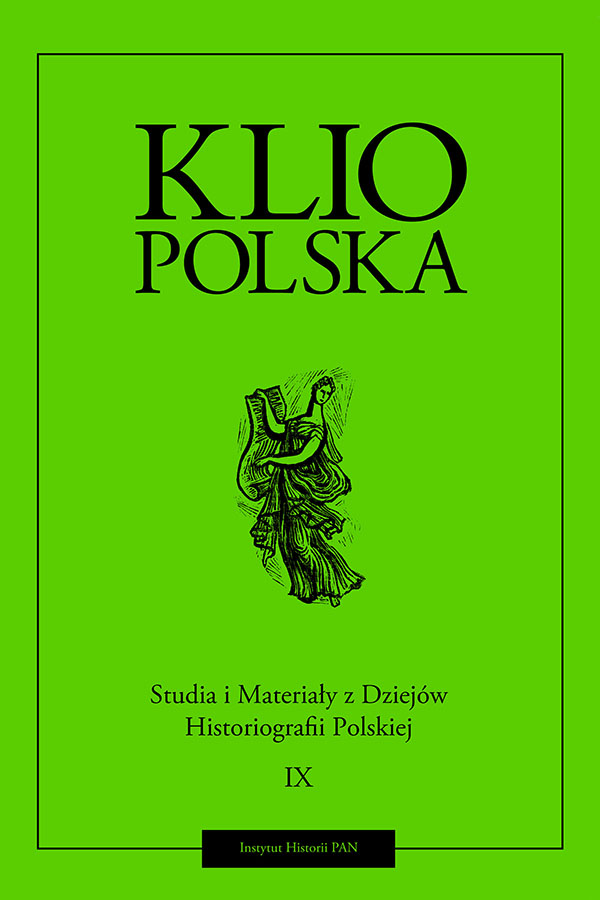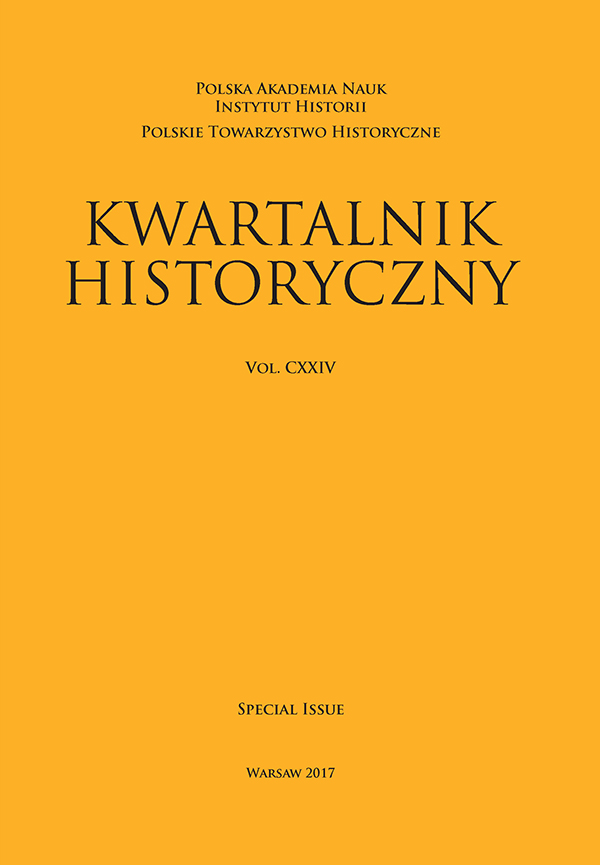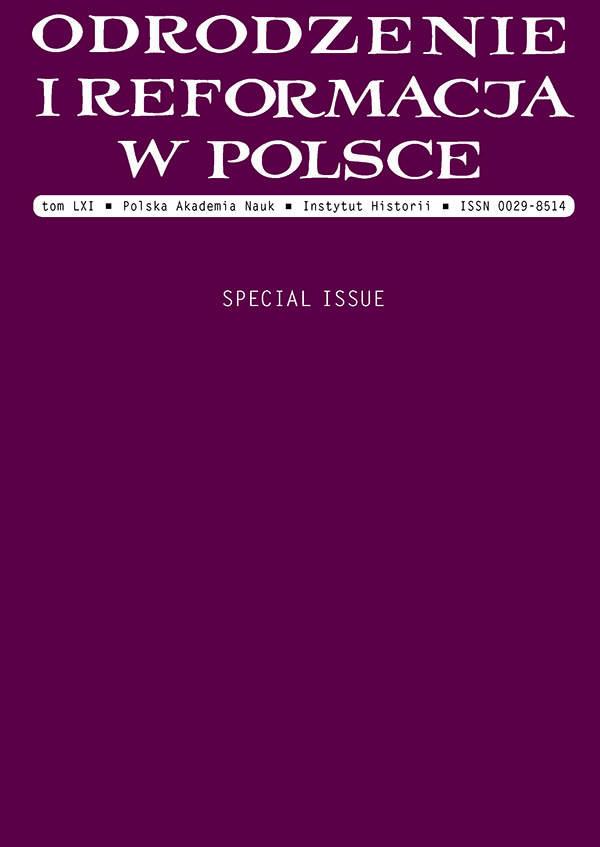
Dwa spojrzenia na historię Polski. Polemika demokratów lwowskich Henryka Schmitta i Ludwika Wolskiego z przedstawicielem krakowskiej „nowej szkoły historycznej” Józefem Szujskim w latach 70. XIX wieku
The purpose of the article is to present the polemic between Henryk Schmitt and Ludwik Wolski, the advocates of what is known as a democratic view of Polish history, on the one hand, and one of the main representatives of the Kraków school of history, Józef Szujski, on the other. In recounting the polemic, I seek to answer the question of whether it was simply a matter of historiographical controversy, or whether Galicia’s political circumstances and the situation of the subjects of this article affected the views they expressed.
More...

